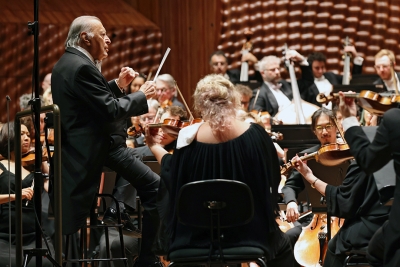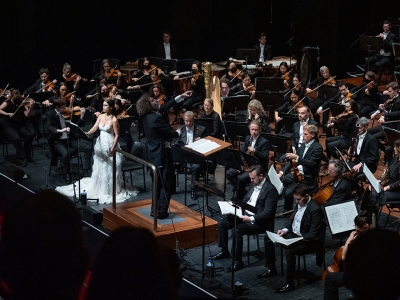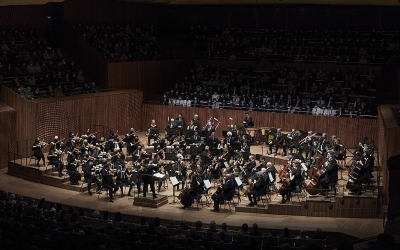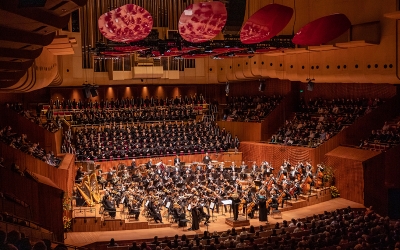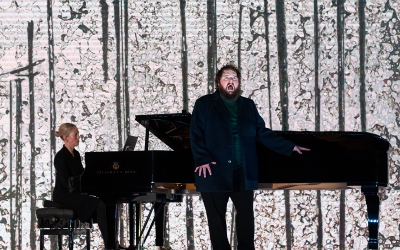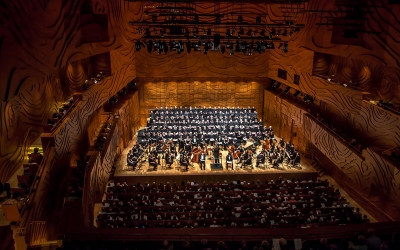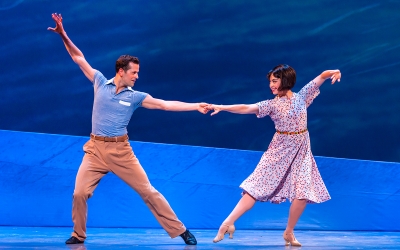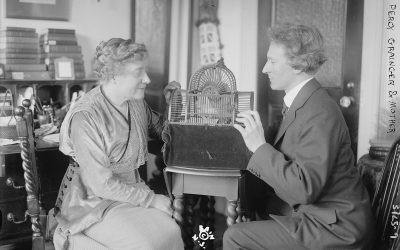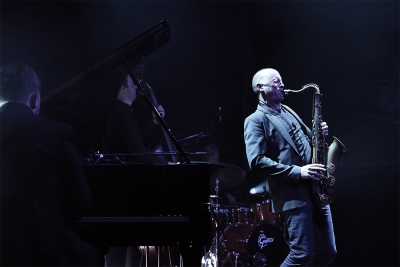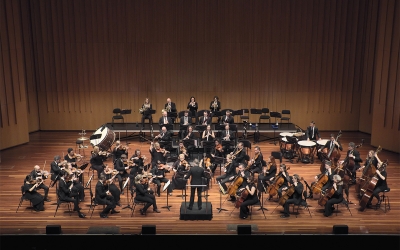Music
To place the Australian World Orchestra (AWO) in a truly global context, and before I deal with Wednesday night’s triumphant concert in Hamer Hall, I must briefly expand my terms of reference.
... (read more)Benjamin Britten’s War Requiem was written for the consecration of the new Coventry Cathedral in 1962, after the old cathedral had been destroyed by German bombing raids in 1940. He dedicated the work to four friends, three of whom were killed while on active service during World War II, and the fourth of whom survived the war but later committed suicide. As an avowed pacificist who had been a conscientious objector during the war, Britten took the opportunity to compose a work combining the traditional Latin Requiem Mass with the anti-war poetry of Wilfred Owen: a fellow pacificist (and fellow gay man) who had served as a lieutenant in World War I and who was killed on the Western Front one week before the Armistice was declared in 1918.
... (read more)Over the years, the demise of the solo art song recital has often been predicted, yet the format lives on, sometimes reflecting new approaches and variations on tried and tested practices, but generally remaining within the parameters of a singer and pianist in evening wear on an empty stage. It evolved from informal house concerts in Europe in the late eighteenth century, probably reaching its ‘standard’ setting in the mid to late nineteenth century in the German-speaking lands in a form known as the Liederabend (song evening) ...
... (read more)At drinks following the first performance of this sold-out run of Gustav Mahler’s Symphony No. 2, conductor Simone Young chatted to mezzo-soprano Michelle DeYoung, the latter’s hoarse voice alarming the two of them. ‘We need to call Debbie,’ Young told a colleague, wary of what the morrow would bring. ‘Right now!’
... (read more)Forty-four years ago, Andrew Porter, that peerless and prolific music reviewer of The New Yorker magazine, cast a prophecy:
... (read more)I trust I am wrong, but sometimes it seems to me that when Elisabeth Schwarzkopf, Elisabeth Söderström, Peter Pears and Dietrich Fischer-Dieskau retire, lieder singing will become a lost art. There is no one in the younger generation who commands as they do the understanding and the technique that bring German songs to life.
There are some circumstances that shift a musical performance into another dimension of significance. Mstislav Rostropovich playing Bach’s cello suites in Berlin on 11 November 1989, two days after the fall of the Wall, is perhaps the twentieth century’s most vivid example.
... (read more)It is called An American in Paris, but perhaps a more apt title would be The Americans in Paris. Not because the story is about two ex-servicemen who decide to ditch the victory parades back home and stay in a recently occupied city that is in desperate need of revival; but because the show itself is a triumph of the American musical as an art form, a kind of staking out of territory. It is, in its own way, an act of cultural imperialism, a banishment of old conventions in favour of something shiny and new. Proof of this comes deep into the second act, when a French character who fancies himself ‘a song and dance man’ suddenly launches into a fully fledged tap routine that ends with a high-kicking chorus line straight out of Radio City Music Hall. We are still in Paris, right?
... (read more)Australians might be forgiven for thinking that the history of classical music – as an art form with origins in Europe – is something that happens elsewhere, that we are little more than observers (and listeners) of a tradition that is essentially the property of others. Melbourne-born Percy Grainger (1882–1961), however, presents us with an unambiguous claim to being a classical composer of lasting historical significance. And yet his music is also not performed, or celebrated, here with anything like the frequency and enthusiasm that it is overseas.
... (read more)In 1961, Ornette Coleman was scheduled to play in Cincinnati. According to one story, the concert turned into a near-riot after patrons refused to pay, having observed the marquee out front billing the performance as ‘Free Jazz’. Whether apocryphal or not, it goes to the heart of the long-running confusion about jazz terminology. Free jazz, of course, refers to the experimental or avant-garde work of innovators, like Coleman, who rebelled against the conventions of bebop, hard bop, and modal jazz.
... (read more)‘Bringing the world back home’ was an early strapline of Australia’s SBS network. In those early multicultural days, it emphasised that being Australian did not restrict you from being culturally plural. It had the unfortunate implication, however, that Australia was not actually part of ‘the world’. We stood apart. Zoom forward to Covid-struck 2021, and Australia desperately wants to stand apart. Bringing that world back home has proven quite a technical difficulty, in sport, business, culture, even family reunion.
... (read more)
